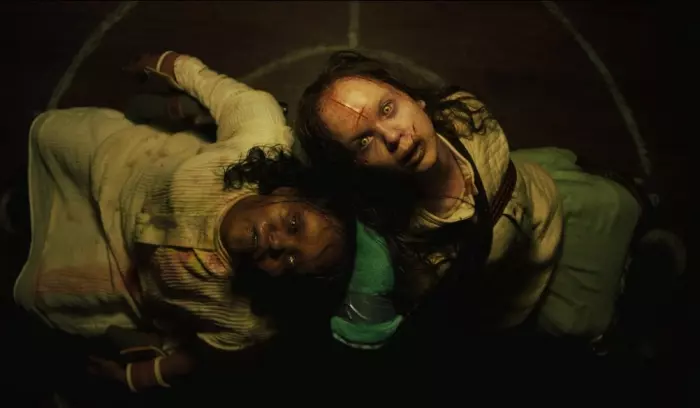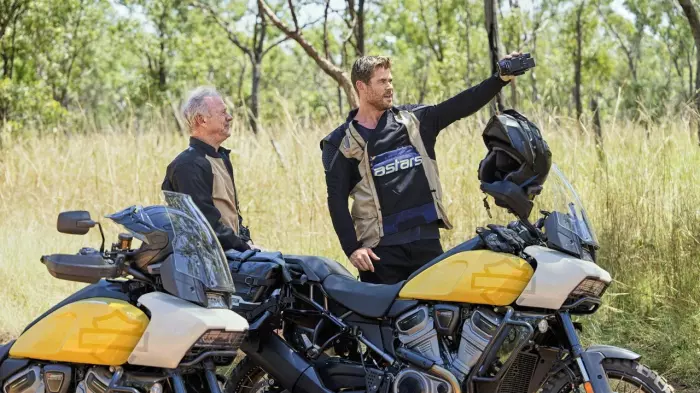In 1973, William Friedkin's The Exorcist changed the world of horror cinema forever.
Its use of practical and special effects terrified audiences for generations to come, and it was also nominated for 10 Academy Awards, including best director, best acting and cinematography – and it won best original screenplay based on another medium, as well as best sound.
For horror movies, being recognised by the academy is no mean feat.
Even today, The Exorcist holds up as one of the greatest horror movies of all time, earning its place amongst movies such as Stanley Kubrick's The Shining and Jonathan Demme's The Silence of the Lambs.
Mediocre film
A director who dares to do a direct sequel to such an iconic film usually falls into one of two categories.
Either they create something that is equally daring and iconic that stands on its own two feet as a brilliant movie while still respecting and honouring the original, such as Michael Flannagan's sequel to The Shining with the excellently paced and directed Doctor Sleep, or it falls by the wayside as a mediocre film latching onto the success of its predecessor but not even getting close to matching it, let alone bettering it.
Unfortunately, much as David Gordon Green did with his mixed reception Halloween Trilogy, this falls into the latter category.
There was plenty of trepidation when it was announced that Green would be moving on from his average Halloween sequels to have a crack at a direct sequel to the original Exorcist film.
Fans were cautiously optimistic when they heard that original actors Ellen Burstyn and Linda Blair were reprising their roles, and the trailer looked like it had potential.
However, these hopes began to fade after rumours the actors were reluctant to return.
In fact, after Friedkin died earlier this year, writer and film critic Ed Whitfield posted this on X (Twitter) and Facebook: "William Friedkin once said to me, 'Ed, the guy who made those new Halloween sequels is about to make one to my movie, the Exorcist.
"That's right, my signature film is about to be extended by the man who made Pineapple Express. I don't want to be around when that happens. But if there's a spirit world, and I can come back, I plan to possess David Gordon Green and make his life a living hell'."
After seeing The Exorcist: Believer, I’m glad Friedkin wasn't around to see this generic cash-grab of a sequel to his 1973 masterpiece.
The plot
The story starts intriguingly enough.
Two girls disappear in the woods for days, eventually being found with numerous unexplained wounds and burns and with no recollection of what happened or for how long they were missing.
Like the original, Believer benefits from grounding much of the story on the relationship between parent and daughter, and the story is at its most engaging when the focus is on this father-daughter interaction.
As the story progresses, however, it pushes forward with predictable scares that build to a typical exorcism finale where the character Chris MacNeil returns to help in the fight against the demon that possessed her own daughter Regan 50 years before.
It may have worked on paper, certainly in terms of marketing and studio ticket sales, but much like the Halloween sequels a few years before, it does little with the iconic returning characters and offers nothing in terms of originality or intrigue.
What made Friedkin's The Exorcist so iconic and powerful at the time was the pushing of theatrical boundaries to scare the audience into not just jumping but being genuinely repulsed and confronted by the images it was portraying.
From the famous Regan head spin to the confronting sexual imagery, it burned visceral and disturbing images into the minds of the audience and has continued to be as effective today as it was in the late 70s.
The verdict
Green certainly has a love for the original, but unfortunately, this love is not combined with enough confidence in taking risks and pushing boundaries to make the film anything more than a forgettable possession film.
That’s not to say there aren’t things to like about The Exorcist: Believer.
It hints at some interesting concepts of morality and right and wrong and makes some steps towards bringing light to the challenges parents face in times of tragedy.
It explores the concept of parental guilt with some maturity and depth; however, this is brushed aside too quickly for the entertainment factor of the expected jump-scare-filled climax, and the outcome is as predictable as you might expect.
The performances are solid, but again not going to stick with you long after the credits roll.
Sound and lighting are adequate, and the special effects are impressive enough but even with all these parts combined, the ambition and skill needed to successfully fulfil the expectations of a sequel to arguably the greatest horror movie of all time is not something Green and his team are up to.
Perhaps if they had made this a standalone exorcist film, it would not face the inevitable scrutiny of trying to live up to the original, but even with expectations aside, The Exorcist: Believer ends up being nothing more than an average horror movie that could easily just mistakenly feel part of the saturated Conjuring Universe or any of the other films Blumhouse Productions has been endlessly churning out for the past 10 years.














